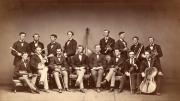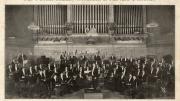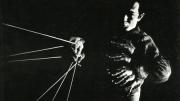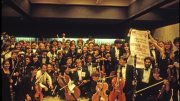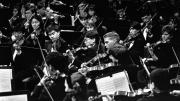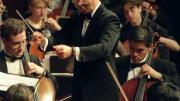Last year, the Harvard-Radcliffe Orchestra (HRO), formerly known as the Pierian Sodality of 1808, celebrated its bicentennial. It could claim to be the oldest orchestra in America: relative newcomers like the New York Philharmonic (1842), Boston Symphony Orchestra (1881), and Philadelphia Orchestra (1900) arrived decades later (see “Two Centuries of Sound,” May-June 2008, page 23). But in its early years, the Pierian Sodality, named for the mythical spring that gave Greek gods musical inspiration, was simply a loose collection of students who liked to play music together. One of their most pleasant pastimes was serenading young ladies. On the night of June 22, 1820, for example, they “...serenaded almost every pretty girl in Boston…and returned to Cambridge at day break on the 23rd.”
This detail appears in a graceful, profusely illustrated, and highly readable history of the HRO, For the Joy of It, recently published by the Pierian Foundation (copies are available from a foundation director, Christine Balko Slywotzky, at cbslywotzky@yahoo.com). Mixing history and anecdote, the 76-page volume narrates the evolution of that small cadre of musicians (whose number shrank in 1832 to only one, Henry Gassett of the class of 1834, a flutist—and soloist) into a full-scale orchestra that has played in Berlin and Moscow and toured Taiwan, Korea, and Japan, among other foreign travels. For the Joy of It traces the growth of the orchestra through its various phases and conductors, and provides a charming account of a long, adventurous voyage conducted on waves of sound.
